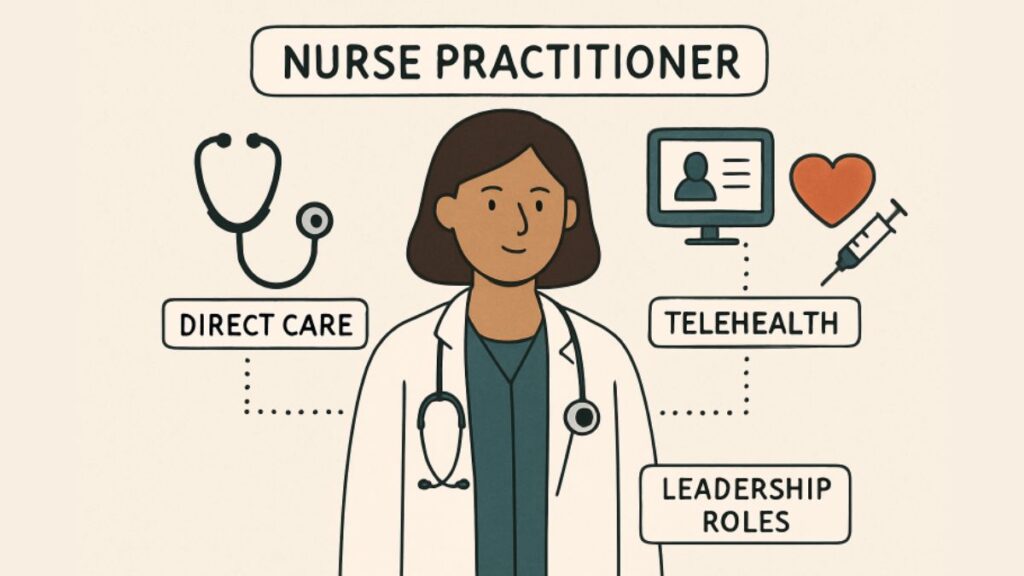Introduction
Nurse practitioners (NPs) are fundamentally transforming the landscape of modern healthcare. Their advanced clinical education, combined with the broad autonomy to diagnose, treat, and manage patients, enables them to play pivotal roles in care delivery across the entire spectrum of health services. As care models shift to emphasize patient-centered, evidence-based practices, NPs are embracing new and diverse opportunities to advance their careers. Whether through bedside care, innovative telehealth platforms, or clinical leadership, nurse practitioners today are at the forefront of initiatives that enhance both patient outcomes and operational efficiency. For those seeking fulfilling and dynamic careers, a wealth of NP jobs is available nationwide, offering variety, growth potential, and the opportunity to make a difference.
The traditional image of NPs as primarily clinic- or hospital-based providers is rapidly evolving. Healthcare systems across the United States increasingly recognize the invaluable expertise that nurse practitioners bring to every setting, from local community health initiatives to cutting-edge virtual care platforms. As a result, NPs are becoming prominent leaders in preventive care, chronic disease management, patient education, and even health policy reform. These changes reflect the shift toward holistic, proactive healthcare, opening exciting new career pathways as the profession gains visibility and respect in the broader healthcare community.
Rising Demand for Nurse Practitioners
The healthcare sector is witnessing extraordinary growth in the demand for nurse practitioners, a trend that is reshaping the workforce and the delivery of care at every level. Official forecasts from the U.S. Bureau of Labor Statistics reveal that the NP profession is expected to grow by an astonishing 45% from 2023 to 2033, a rate far surpassing that of most other healthcare roles and signaling a new era for advanced practice providers. The driving forces behind this surge include a rapidly aging baby boomer population, which brings complex, chronic health conditions requiring long-term management and specialized care. At the same time, healthcare models are shifting from episodic, reactive medicine to an emphasis on preventive, continuous care, a natural fit for the NP skill set.
Importantly, employers in both urban centers and rural communities are turning to NPs to bridge the gaps where physician shortages are most acute. In small towns and remote areas, where access to healthcare has historically been a challenge, NPs are often the cornerstone of primary and urgent care services. However, this elevated responsibility extends beyond outpatient clinics—NPs are now a critical presence in long-term care facilities, urgent care centers, retail health clinics, and specialty practices, adapting to the changing needs of community health. This versatility makes the nurse practitioner career path extremely resilient, future-ready, and deeply rewarding, as practitioners have the freedom to personalize their practice settings and the populations they serve.
Embracing Telehealth Services
Of all the innovations reshaping the NP profession, the rapid rise of telehealth stands out as one of the most powerful. Technological advances have enabled nurse practitioners to transcend traditional care boundaries, delivering services seamlessly through secure digital platforms. Telehealth opens up opportunities for NPs to consult virtually, assess patient symptoms, develop treatment plans, refill prescriptions, and provide ongoing disease management, all without requiring in-person visits. This technological progress is especially significant for patients living in rural or underserved areas, who may face barriers such as transportation challenges or long wait times to see a healthcare provider.
By embracing telehealth, nurse practitioners are playing a major role in democratizing healthcare, fostering earlier interventions, and making routine follow-up care more convenient. This model, in which NPs serve as primary points of contact for chronic disease management, mental health support, and health coaching, not only increases efficiency but also fosters stronger patient-provider relationships. Telehealth empowers NPs to monitor patients over time, identify complications early, and reinforce preventive strategies. The surge in remote care delivery has not only improved access but has also made health services more patient-centered, flexible, and cost-efficient.
Specialization Opportunities
Nurse practitioners are increasingly pursuing certifications in areas such as psychiatry, geriatrics, oncology, acute care, and women’s health to address the needs of specific populations. These specialties are in high demand, allowing NPs to tailor their clinical focus and make a meaningful impact on particular patient populations. For example, psychiatric-mental health nurse practitioners (PMHNPs) address mental health crises, geriatric nurse practitioners provide compassionate care to older adults, and oncology NPs provide education and support throughout treatment. Specialization not only empowers NPs with higher earning potential and enhanced professional respect but also brings deeper clinical satisfaction through targeted, impactful patient care.
Focus on Preventive and Holistic Care
The core ethos of nursing, treating the whole person, remains central to modern NP practice. Rather than simply responding to illness, nurse practitioners lead the way in shifting care toward prevention and holistic wellness. They implement and coordinate vaccination programs, screenings for early detection of diseases such as diabetes and hypertension, and management strategies for chronic conditions. NPs spend time coaching patients and families on nutrition, physical activity, stress reduction, and medication adherence, targeting the root causes of illness and promoting sustained health improvements.
This holistic approach goes far beyond clinical interventions. Nurse practitioners actively participate in community health fairs, wellness initiatives, and health literacy programs that empower patients to make informed choices. Their presence in patient-centered medical homes and value-based care teams helps reduce hospital readmission rates, decrease preventable complications, and support better long-term outcomes.
Advancing Through Education and Leadership
Nurse practitioners are increasingly pursuing advanced education and leadership roles in healthcare to expand their influence and impact on the field. Earning higher academic credentials, such as the Doctor of Nursing Practice (DNP), positions them as clinical authorities and opens doors to executive roles. Additional certifications in subspecialties differentiate NPs and make them attractive candidates in competitive job markets. NPs are breaking new ground in fields traditionally reserved for physicians and administrators, such as shaping organizational policies, leading quality improvement initiatives, and guiding interdisciplinary teams. Leadership roles in health systems, academia, and advocacy organizations allow NPs to leverage their expertise on a macro level. Lifelong learning through workshops, continuing education, and professional organizations ensures NPs maintain the most up-to-date knowledge and skills.






